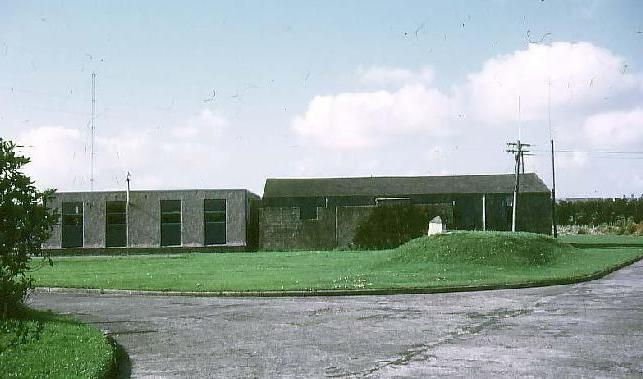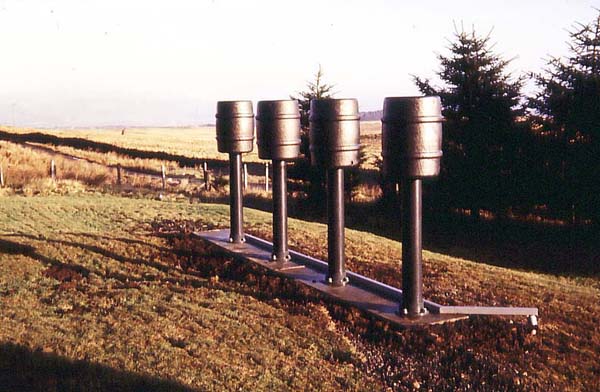 |
| Kidsdale master station: This wartime gunnery training aerodrome became the site for the North British master by reusing old, wartime buildings Previously, Kidsdale and Stirling were also the two DECTRA stations in the UK each with 600 foot masts. When DECTRA was shut down, these masts were reused for Decca Navigator transmissions. (Photo courtesy Doug Sim) |
 |
| A view of the 600-foot mast at Stirling. Originally built for Dectra, it later used for normal Decca transmissions.(Photo courtesy of Douglas Sim) |
 |
| APS Aerials: Made from plastic water butts (inspired it was said, by the sight of them outside a garden shop opposite the Decca labs in New Malden) these were a breakthrough in reducing noise in heavy rain. The old wire aerials were very suscecptible to static generated by rain on the aerials. Loss of lock with the Master station could occur as the noise level rose during a storm. The APS used a graphite paint on the exterior of the butt and a 1 Megohm resistor to discharge the static at an increased distance from the short aerial wire suspended in the barrel. Static was reduced dramatically. There was a broadband amp in the barrel to compensate for lower signal strength. This picture shows the first installation, at Stirling in Scotland. (Photo courtesy of Douglas Sim) |
